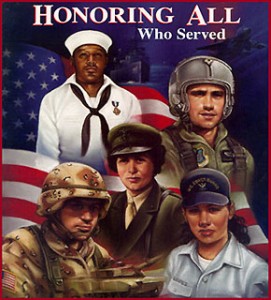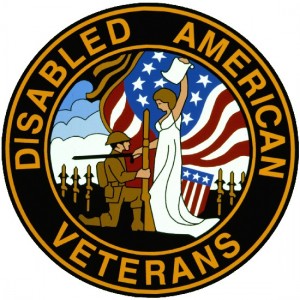Sales Representative – Wray Mazda Volkswagen

NOW HIRING AUTO SALES REPS!
No Previous Experience Required!
We Will Train You the RIGHT WAY!
Wray Mazda Volkswagen is offering YOU a lifelong CAREER, with a company that ALWAYS puts honesty and integrity first. The Auto Industry is BACK and STRONGER THAN EVER! Sales are up all over the country and here at Wray Mazda Volkswagen we have experienced a HUGE increase in demand for our products. As a result of this growth, we are currently looking to hire several Auto Sales Reps! No previous experience is needed! Due to a recent surge in sales, we will be looking to hire MULTIPLE SALES REPS!
REQUIREMENTS- Previous auto sales experience is NOT REQUIRED for this position. Those with experience in customer service, account executive, financial services, mortgage and restaurant industries have proven to be very successful when switching careers to Auto Sales. Qualified applicants should have a professional appearance, a high school degree (or equivalent) and a valid driver’s license with an acceptable driving record. High-energy, positive, out-going individuals with strong verbal communication skills WILL succeed at Wray Mazda Volkswagen!
Wray Mazda Volkswagen Offers:
Excellent pay plan with big bonuses & great incentives!
$40,000 – $60,000+ annual earning potential!
Benefits include medical, dental, 401k plan and paid vacations!
$2,000/month guaranteed training salary, starts as soon as you are hired!
Flexible, 5-day workweeks and no Sundays!
Family owned and operated with an excellent reputation in your community for over 25 years!
Ongoing training and development!
High customer satisfaction for both Sales & Service!
Room for advancement!
Interviews are 2 days only!
Tuesday, May 28th & Wednesday, May 29th
from 10:00am – 5:00pm
APPLY TO THIS AD TO SCHEDULE YOUR INTERVIEW!
If you are unable to schedule an interview we will be sure to see ALL walk-in applicants.
&
Please dress professionally for your interview!
All interviews will be held at:
Wray Mazda Volkswagen
655 Broad River Road, Columbia, SC 29210
Multiple positions available! No previous auto sales experience is needed. Apply now to schedule your interview. If you are unable to schedule an interview we will be sure to see ALL walk-in applicants. Applicants from construction, restaurant, retail, sales, customer service, hospitality, and banking industries are strongly encouraged to apply! Equal Opportunity Employer. Applicants must be 18 years or older and be authorized to work in the US. Applicants must have a valid driver’s license. Content of this ad is sole responsibility of Wray Mazda Volkswagen. ©AM2013
Keywords: sales, bdc, business development center, public relations, consumer products, customer relations, call center, wireless, careers, advertising, marketing, insurance, finance, consulting, mortgage broker, automotive, auto salesman, car salesman, car salespeople, salespeople, salesperson, real estate, pharmaceuticals, restaurant, servers, bartenders, client rep, client service rep, customer service rep, account executive, business development representative, hospitality, hotel, retail, entry level, telemarketing, e-commerce, internet
Dealers Find Opportunity in Hiring Veterans

U.S. Army veteran Ryan Medina, left, joined Mike Calhoun’s sales force at Performance Mazda of Houston in January.
Written By: Jamie LaReau
Follow Jamie on ![]()
Automotive News— March 26, 2012 – 12:01 am ET
Ryan Medina, 26, isn’t a typical car salesman.
His first job was with the U.S. Army. Medina was stationed in Afghanistan, providing security for a convoy that was crossing the desert searching for insurgents and roadside bombs.
Medina’s three years in the Army, including eight months in Afghanistan, armed him with skills that he uses today to sell cars at Performance Mazda of Houston.
“The military requires self-motivation and being positive,” Medina says. “I’m self-motivated. You’ve got to keep your morale up in this industry because you have people come in back-to-back and not buy a thing.”
As the U.S. government withdraws more troops from Afghanistan this year, many dealers are hiring veterans.
Not only can dealers get one-time tax credits ranging from $2,400 to $9,600 for hiring veterans, says Craig Lockerd, owner of AutoMax Recruiting and Training in Mays Landing, N.J., but job recruiters and dealers say many veterans have attributes that make them strong job candidates: They know how to follow directions, pay attention to detail, respect others, are self-motivated and are trained to be leaders.
“Most people who’ve been in the service have a little more discipline about themselves and are used to following orders,” says Mike Calhoun, general manager of Performance Mazda of Houston, which sells about 1,500 new and used vehicles a year.
Calhoun hired Medina and a former Marine as salesmen in January.
Plenty of veterans are joining the work force as U.S. troops return from the Middle East and elsewhere, recruiters say. About 1 million people are in the National Guard, for example, and it’s estimated that about a quarter of them will be unemployed when their enlistments end, Lockerd says.
“That’s criminal, in my opinion,” he says.
In mid-January, Lockerd launched an online job board, onlinevetjobs.com, where dealers post jobs for free and veterans apply. Almost 300 veterans have found jobs through the site, Lockerd says.
Katie Jenson, 24, a service technician at McRee Ford in Dickinson, Texas, credits her experience working on military vehicles as an Army military police officer stationed in Bamberg, Germany, for success in her job now.
“You have to pay a lot of attention to detail of what you’re taking apart and putting back together,” Jenson says. “You need to take charge when necessary. You need to have respect for everyone around you.”
McRee services 60 to 80 vehicles a day, says Tim Allen, McRee’s service manager. He says he hired Jenson a year ago based on her military experience and her self-confidence.
“I have found that people that came out of the military are very sure of themselves and have some basis of training discipline,” Allen says. “I had no doubt she’d make a good employee.”
Our Mission Is To Find Our Vets Jobs, Now That Their Mission Is Complete
Here at Automax Recruiting And Training we are dedicated to finding jobs for our returning American Vets. Help us spread the word and hire a vet!
Tax Credit For Hiring US Veterans: Returning Heroes and Wounded Warriors Work Opportunity Tax Credit
 While you will find a lot of info on how much tax credit you can ultimately receive for each vet you hire to fill a job opening, there isn’t much on how to actually apply for it. My aim is to tackle that in this post. I must, however, inform you that I am not a CPA, a tax law lawyer, or work for the IRS so please defer any questions that you may have to them.
While you will find a lot of info on how much tax credit you can ultimately receive for each vet you hire to fill a job opening, there isn’t much on how to actually apply for it. My aim is to tackle that in this post. I must, however, inform you that I am not a CPA, a tax law lawyer, or work for the IRS so please defer any questions that you may have to them.
Three Things To Keep In Mind
- The credit expires at the end of 2012. Tax credit will be given for any qualified veteran hired between November 22nd and December 31st, 2012.
- There is no time limit on when a qualifying veteran has retired. As long as they have been unemployed for just 4 weeks they qualify.
- Qualified Tax exempt organizations can also take advantage, including non-profits.
Also, there is no limit on the number of veterans you can hire in order to take advantage of this tax credit, you can hire 1 or a dozen! The IRS will even allow you to carry the tax credit back a year or forward 20 years.
So, Whats The Process?
If you found the veteran through your State Workforce Agency (SWA), complete the employers portion of:
- Conditional Certification, Work Opportunity Tax Credit, ETA Form 9062, and the
- Pre-Screening Notice and Certification Request for the Work Opportunity Tax Credit, Form 8850
If you found the veteran through any other means, complete the employers portion of:
- Individual Characteristics Form (ICF) Work Opportunity Tax Credit Form 9061, and the
- Pre-Screening Notice and Certification Request for the Work Opportunity Tax Credit, Form 8850
If the veteran was found through the SWA then their veteran status may have already been verified. You will be provided, either by the SWA or the applicant, a copy of the Conditional Certification, Work Opportunity Tax Credit, ETA Form 9062. All that is required of you is to fill out the employer section. After which, both forms (the 9062 and the 8850) must be sent back to the SWA no later than 28 days after hire. If all information can be verified then you will receive a WOTC Employer Certification Form for that vet.
If you found the vet by any other means then you can still request veteran status by filling out the ICF Work Opportunity Tax Credit Form 9061, collecting a copy of the required documentation (you’ll find it on the form) from the veteran, and providing it and the Form 8850 to your SWA for verification (again no later than 28 days).
Something To Keep In Mind
Form 9061 must be voluntary because prospective employees are not required to supply the information. A simple way around this is to present this document to all prospective employees. If you are concerned that you cannot ask this information of someone until an offer of employment is made, know that the Office of Federal Contracts Compliance Programs (OFCCP) has proposed that employers ask applicants to self-identify as a veteran and/or a person with a disability upon applying for a job.
For More Information on this topic, which this post borrows heavily from, please check out Lisa Rossers blog at http://blog.
thevalueofaveteran.com )
Help Our Heroes Find Work – Hire A Vet
They risked their lives to preserve our way of life here in the US. Now that they are coming back home, it’s time to fill you job openings with vets. In this video we’ll give you plenty of reason why.
Hiring Vets Makes For A Good Business Decision
Hiring a US Military Vet just makes good business sense. They’re efficient, have great leadership skills, respect procedures, work well with a team and a host of other things. In this video Craig Lockerd and Paul Hardy discuss why hiring a US Military Vets, to fill your job openings, is a good idea.
10 Reasons To Hire A Disabled Vet
 Ability to learn new skills and concepts. While in the military, Service Members undergo rigorous training programs to become experts in a wide-range of skills and concepts that can easily be transferred to a civilian work environment. The skills Service Members have learned and applied in real-world situations in the military make them ideal candidates to enhance your organization’s productivity.
Ability to learn new skills and concepts. While in the military, Service Members undergo rigorous training programs to become experts in a wide-range of skills and concepts that can easily be transferred to a civilian work environment. The skills Service Members have learned and applied in real-world situations in the military make them ideal candidates to enhance your organization’s productivity.- Strong leadership qualities. The military trains Service Members to lead by example as well as through direction, delegation, motivation and inspiration in some of the toughest situations imaginable. Service Members are not only well schooled in the academic theory of leadership; they also understand and have used practical ways to manage behaviors for results.
- Flexibility to work strongly in teams or work independently. Military training teaches Service Members to work as a team by instilling a sense of a responsibility to one’s colleagues. In addition, the size and scope of military operations necessitates that Service Members understand how groups of all sizes relate to each other and support the overarching objective. While military duties stress teamwork and group productivity, they also build individuals who are able to perform independently at a very high level.
- Diversity and strong interpersonal skills. Service Members have learned to work side by side with individuals regardless of race, gender, religion, ethnic, and cultural backgrounds, economic status, and geographic origins as well as mental, physical and attitudinal capabilities. Many Service Members have also been deployed or stationed in numerous foreign countries that give them a greater appreciation for the diverse nature of our globalized economy.
- Ability to work efficiently and diligently in a fast-paced environment. Service Members have developed the capacity and time-management skills needed to know how to accomplish tasks correctly and on time, in spite of limited resources and immense pressure.
- Respect for procedures and accountability. Service Members know how policies and procedures enable an organization to be successful and they easily understand their place within an organizational framework. Service Members understand the responsibility that comes with being responsible for the actions of subordinates and they understand how to properly elevate issues through the proper supervisory channels.
- Hands on experience with technology and globalization. Today’s military uses the cutting-edge technology to maintain our dominance over the enemy in the battlefield. From communications technology to the security of computer networks and hardware, Service Members must stay aware of emerging technologies in the public and private sector.
- Strong personal integrity. Military training demands that individuals not only abide by a strong Code of Ethics, but that they live it each and every day. Military personnel are often trusted with security clearances that give them access to highly sensitive information. An employee with a proven track record of trustworthiness is often an asset to an organization.
- Strong sense of health, safety and property standards. Service Members are aware of health and safety protocols both for themselves and the welfare of others. Individually, they represent a drug-free workforce that is cognizant of maintaining personal health and fitness. On a company level, their attentiveness and care translate into respect for employees, property and materials.
- Triumph over adversity. In addition to dealing positively with the typical issues of personal maturity, Service Members have frequently triumphed over great adversity. Service Members have proven their mettle in mission critical situations demanding endurance, stamina and flexibility. In the case of wounded warriors, they have overcome severe disabilities, acquired injuries (including invisible injuries) through strength, determination and personal conviction.
FAQ About Traumatic Brain Injury and Employment
 What is Traumatic Brain Injury (TBI)?
What is Traumatic Brain Injury (TBI)?
A Traumatic Brain Injury (TBI) is defined as a blow or jolt to the head or a penetrating head injury that disrupts the function of the brain. Not all blows or jolts to the head result in a TBI. The severity of such an injury may range from very “mild,” (i.e., a brief change in mental status or consciousness) to “severe,” (i.e., an extended period of unconsciousness or amnesia after the injury). A TBI can result in short or long-term problems, although most people with TBI are able to function independently.
Are all TBIs the same? What are the symptoms of TBI?
“TBI” is an umbrella term that spans a wide continuum of symptoms and severity. In fact, the large majority (80%) of combat head injuries sustained in Operation Iraqi Freedom and Operation Enduring Freedom are mild concussions as opposed to severe, debilitating TBI. Symptoms can include: poor concentration, irritability, fatigue, depression, memory problems, headaches, anxiety, trouble thinking, dizziness, blurry/double vision and sensitivity to bright light. For people with brain injuries, the most rapid recovery occurs in the first six months after the injury, and in milder cases, patients will often be back to normal within three months. When several symptoms persist for three months or longer, the diagnosis of post-concussion syndrome can be considered.
Are TBIs disabilities under the Americans with Disabilities Act?
The ADA does not contain a list of medical conditions that constitute disabilities. Instead, the ADA has a general definition of disability that each person must meet. Therefore, some people with TBI will meet the criteria for having a disability under the ADA and some will not. A person has a disability if he/she has a physical or mental impairment that substantially limits one or more major life activities, a record of such an impairment, or is regarded as having such an impairment. For more information about how to determine whether a person has a disability under the ADA, visit www.eeoc.gov/policy/docs/902cm.html.
Are employees (or applicants) with TBI required to disclose their disability to their employers?
No. Employees need only disclose their disability if/when they need an accommodation to perform the essential functions of the job. Applicants never have to disclose a disability on a job application, or in the job interview, unless they need an accommodation to assist them in the application or interview process.
Can an employer ask an employee with TBI to submit to a medical examination?
Yes, if the need for the medical examination is job-related, consistent with business necessity and conducted after an offer has been made. People with brain injuries (or any disability) do not have to submit to a medical exam, or answer any medical questions until after they have been conditionally offered a job.
Why does employment play such an important role in the recovery of returning service members with TBI?
Employment enables many people with disabilities, including those with TBI, to fully participate in society. For example, employment provides income that is key to individual and family economic health and general well-being, and builds skills for the future. It also provides greater social interaction and connections that can reduce isolation and build social capital. Finally, employment provides a valued social role in our society and helps create a sense of personal efficacy and social integration that contributes to greater life satisfaction. According to the National Council on Disability, people who regain employment following the onset of an injury and/or a disability report higher life satisfaction and better adjustment than do people who are not employed. For these reasons, gainful employment can be one important component in the recovery and rehabilitation of returning service members with TBI.
What challenges might people with TBI encounter in the workplace?
Although recovery from mild brain injuries (concussions) is generally uncomplicated and complete, some individuals continue to experience cognitive or mood difficulties. Most workplace difficulties associated with TBI are related to attention span, short-term memory, and organization. For some, headaches and mental fatigue may persist.
What sorts of jobs are well-suited for people with TBI?
Because the effects of TBI vary widely, there are no occupations that any particular person with TBI is disqualified from pursuing. Individuals with TBI are finding jobs in a variety of settings, including information technology (IT) companies, healthcare facilities, veterans service organizations and government agencies. However, certain characteristics provide the greatest potential for workplace achievement and success:
- Regular daily schedules
- Routine tasks
- Low levels of distracting noise and light
- Regular breaks
- Access to memory aids (such as voice recorders and task checklists)
How can employers help people with TBI do their jobs more effectively?
Though the time period needed for workplace accommodations can often be short, a variety of promising practices can help people with TBI succeed in the workplace. These include the following:
- Schedule-reminders (telephone, pagers, alarm clocks)
- Scheduled rest breaks to prevent stimulus overload and fatigue
- Work task checklists and clipboards
- Tape recorders as memory aids
- Stop watches for time management
- Job coaches who make frequent, scheduled site visits
- Supportive phone calls after work
- Role playing exercises related to the job
- Periodic evaluation forms completed by supervisors and/or job coaches
- Job-site accommodations including adaptive technology
- Job sharing with another employee
- Mentoring by a co-worker or retired worker
- Setting reasonable expectations for task completion
- Limiting multi-tasking
- Scheduling more difficult or challenging tasks at the beginning of the work shift to account for fatigue
- Recognizing accomplishments through positive reinforcement
(Note: Those with mild TBI generally do not need all of these adjustments or accommodations.)
What resources are available to help employers meet the needs of employees with TBI?
The America’s Heroes at Work Web site-www.AmericasHeroesAtWork.gov-features numerous tools and resources to help employers and workforce development professionals understand and address the needs of employees with TBI. The Web site offers additional fact sheets on TBI-related job accommodations, as well as links to the Web sites of other agencies and organizations such as:
- The Brain Injury Association of America
- Computer/Electronic Accommodations Program (CAP)
- The Defense Centers of Excellence for Psychological Health and Traumatic Brain Injury
- The Defense and Veterans Brain Injury Center
- Employer Support of the Guard and Reserve
- The Job Accommodation Network
- VetSuccess
This fact sheet was developed in cooperation with the U.S. Department of Labor’s (DOL) Office of Disability Employment Policy, the Job Accommodation Network, the Veterans’ Employment and Training Service, the Defense Centers of Excellence for Psychological Health and Traumatic Brain Injury, and the Defense and Veterans Brain Injury Center.
The Vow to Hire Heroes Act of 2011
 NEW! On November 21, 2011, President Obama signed into law the Vow to Hire Heroes Act of 2011. Section 261 of the Act, the “Returning Heroes and Wounded Warriors Work Opportunity Tax Credits,” amends and expands the definition of WOTC’s Veteran target groups.
NEW! On November 21, 2011, President Obama signed into law the Vow to Hire Heroes Act of 2011. Section 261 of the Act, the “Returning Heroes and Wounded Warriors Work Opportunity Tax Credits,” amends and expands the definition of WOTC’s Veteran target groups.
The changes and new provisions in this Act apply to individuals who begin to work for an employer the day after its enactment, November 22, 2011, and before January 1, 2013.
The Vow to Hire Heroes Act of 2011 includes the following provisions:
- Extends the current target group for Veterans receiving Supplemental Nutrition Assistance Program (SNAP) benefits with the same qualified wages cap1 ($6,000) and maximum tax credit ($2,400).
- Extends the current target group for Veterans with a service-connected disability with the same qualified wages cap ($12,000) and maximum tax credit ($4,800).
- Extends the current target group for Veterans with a service-connected disability unemployed for at least 6 months with the qualified wages cap increased to $24,000 and the maximum tax credit increased to $9,600.
- Establishes a new target group for unemployed Veterans, similar to the Recovery Act of 2009 unemployed Veteran group that expired on December 31, 2010:
- Veterans unemployed for at least 4 weeks with a qualified wages cap of $6,000 and maximum tax credit of $2,400.
- Veterans unemployed for at least 6 months with qualified wages cap of $14,000 and maximum tax credit of $5,600.
- State Workforce Agencies will certify veterans as meeting the required periods of unemployment based on receipt of unemployment insurance compensation.
Note: The 5-year period ending on the hiring day requirement that was part of the Recovery Act unemployed veteran group was rescinded.
- Qualified “tax-exempt” (i.e., 501(c)) organizations can now participate by hiring qualified veterans and are now eligible to claim the WOTC.
- These provisions became effective the day after the President signed the Vow to Hire Heroes Act into law, November 22, 2011, through December 31, 2012.
- The Vow to Hire Heroes Act does not extend any of the other (non-Veteran) WOTC target groups, which currently expire on December 31, 2011.
————–
1 For Veterans target groups, WOTC is based on qualified wages paid to the employee for the first year of employment. The tax credit is 25% of qualified first-year wages for those employed at least 120 hours but fewer than 400 hours, and 40% for those employed 400 hours or more.
Filling Your Job Openings With Military Vets Is A Good Idea
At OnlineVetJobs.com we feel that the best recruitment decision you can make is to hire a US Military Vet for all of your job openings.
In this video and in a few more to come Craig lockerd and Paul Hardy of Automax Recruiting And Training discuss what it means to hire US Military Vets to fill your job openings. Take a look at the video, place a job to hire a vet (for free) and see exactly what we mean!


